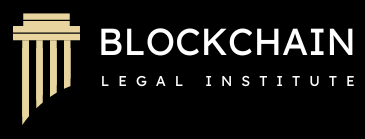Blockchain technology holds significant promise for the healthcare industry, offering solutions for data security, interoperability, and more. However, the integration of blockchain into healthcare also comes with several legal and regulatory considerations. Here are some key legal issues involving blockchain and healthcare:
- Data Privacy and Security (HIPAA Compliance): Health data is highly sensitive, and the Health Insurance Portability and Accountability Act (HIPAA) in the United States mandates strict privacy and security standards for protected health information (PHI). Blockchain solutions need to ensure that patient data remains confidential and secure while being accessible only to authorized parties.
- Consent Management: Managing patient consent for data sharing and access is essential. Blockchain can offer transparent and auditable records of consent, but legal frameworks for digital consent and revocation need to be established.
- Interoperability and Data Sharing: Blockchain can improve data sharing and interoperability among healthcare providers. However, agreements on data access, ownership, and governance need to be established while adhering to relevant data sharing regulations.
- Regulatory Compliance: Healthcare is heavily regulated, and blockchain solutions need to comply with regulations like the Health Information Technology for Economic and Clinical Health (HITECH) Act, the European General Data Protection Regulation (GDPR), and other regional data protection laws.
- Identity Management: Blockchain can enhance patient identity management, reducing the risk of fraud and ensuring accurate patient identification. However, legal considerations related to patient identification and data accuracy need to be addressed.
- Smart Contracts for Medical Agreements: Smart contracts can automate medical agreements, but they need to be legally enforceable and aligned with existing contract laws.
- Clinical Trials and Research Data: Blockchain can enhance transparency and security in clinical trials by recording and validating research data. However, regulatory frameworks for the validation and acceptance of blockchain-secured research data need to be developed.
- Medical Licensing and Credentialing: Blockchain can streamline the verification of medical licenses and credentials. However, legal frameworks for recognizing blockchain-based verification need to be established.
- Medical Device Supply Chain: Blockchain can enhance the transparency and security of the medical device supply chain. Regulations regarding medical device tracking, authenticity, and quality assurance need to be taken into account.
- Liability and Accountability: Blockchain’s immutability raises questions about correcting errors in medical records and attributing liability. Legal mechanisms for addressing inaccuracies or errors in blockchain-stored medical data need to be defined.
- Cross-Border Data Transfers: Blockchain solutions in healthcare might involve cross-border data transfers, requiring compliance with international data transfer regulations.
- Intellectual Property: Healthcare innovations based on blockchain may involve intellectual property rights. Legal agreements and protections for ownership, licensing, and commercialization of blockchain healthcare solutions are important.
- Telemedicine and Licensing: Blockchain can facilitate telemedicine, but regulatory considerations related to licensing, jurisdiction, and remote patient care need to be addressed.
- Insurance and Claims Processing: Blockchain can streamline insurance claims processing, but legal frameworks need to be established for accepting blockchain-based claims records.
- Blockchain as a Medical Device: In some cases, the blockchain technology itself might be considered a medical device, leading to regulatory requirements from medical device agencies.
Addressing these legal issues requires collaboration between legal experts, healthcare professionals, and blockchain technologists. Developing a comprehensive legal framework that ensures compliance with existing regulations while harnessing the benefits of blockchain technology is essential for successful blockchain adoption in the healthcare sector.
CryptoMom2 & GBA Talk Show: A Health Care Blockchain Use Case Solution
CryptoMom2 & GBA Talk Show: Pradeep Goel – CEO – Solve.Care
